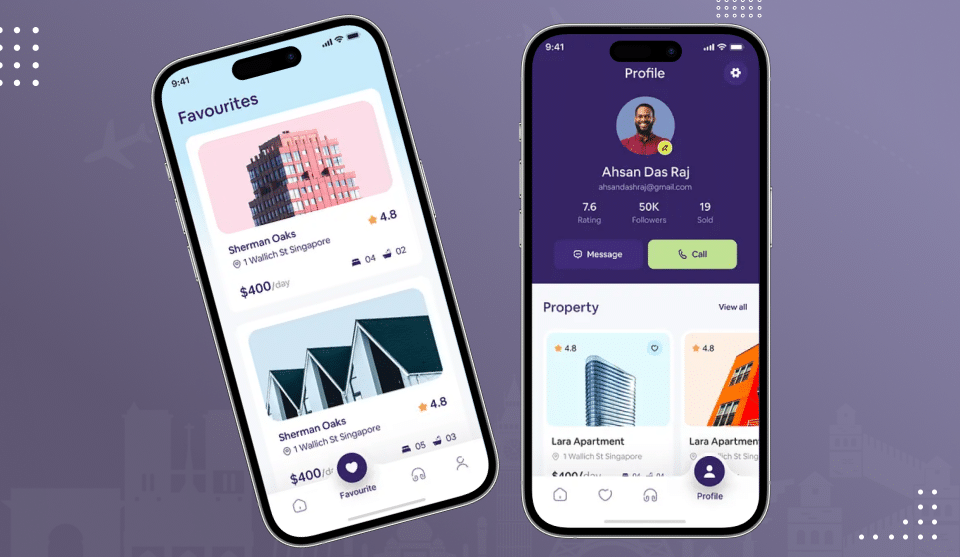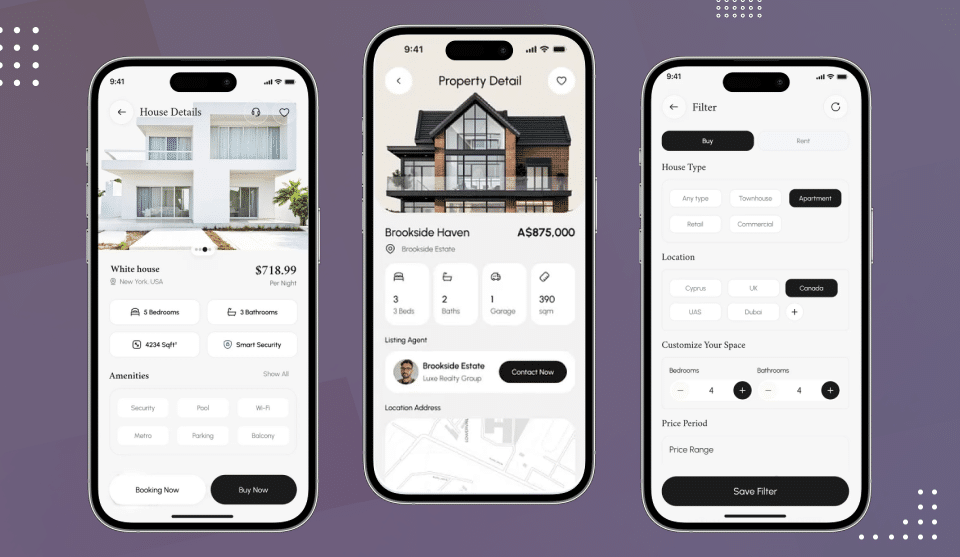IoT’s Critical Role in Urban Development – Explore how IoT app development and connected technologies are transforming cities into smarter, safer, and more efficient urban spaces.
Introduction
The Internet of Things (IoT) is no longer a buzzword—it’s a technological revolution actively shaping the future of our cities. With the world’s urban population expected to grow to 68% by 2050, the need for smart, sustainable, and scalable urban infrastructure is more urgent than ever. IoT app development plays a pivotal role in this transformation, making cities smarter, cleaner, and more livable.
In this blog, we’ll dive into how IoT is transforming city life, why businesses are turning to IoT app development, and where it’s making the biggest difference.
What Is IoT in Urban Development?
IoT is all about smart devices talking to each other and sharing data instantly to make life easier and more efficient. In urban settings, this translates to smart sensors, connected infrastructure, and intelligent systems working together to enhance city life. The data gathered through IoT devices enables better decision-making, efficient resource utilization, and improved public services.
From smart traffic lights to connected waste bins, IoT applications are making city management more proactive than reactive.
The Role of IoT App Development
Behind every successful smart city initiative lies powerful, custom-built applications. IoT app development is the backbone of this ecosystem, providing the interface and intelligence necessary to gather, analyze, and act on the data collected by connected devices.
Whether it’s an app that monitors air pollution or manages public transport routes, the role of IoT app development services is crucial. These applications serve as the control centers for various IoT networks, offering real-time dashboards, alerts, automation features, and data analytics.
Key Areas Where IoT is Driving Urban Development
1. Smart Transportation
Efficient urban mobility is one of the cornerstones of smart cities. IoT enables real-time monitoring of traffic flow, vehicle tracking, and smart traffic signals. Parking apps powered by IoT sensors help drivers locate available spaces, reducing congestion and emissions.
IoT applications in transportation allow:
- Real-time tracking of buses and trains
- Predictive maintenance for public transport
- Optimized traffic light management
- Dynamic toll pricing based on traffic volume
2. Energy Management
Smart grids and IoT-based meters enable cities to manage electricity consumption intelligently. IoT systems can detect power outages, monitor usage patterns, and support renewable energy integration.
With advanced IoT app development, cities can:
- Monitor and reduce energy wastage
- Encourage off-peak consumption
- Automate lighting systems in public spaces
It allows users to keep an eye on their energy use right from their smartphones.

3. Waste Management
Traditional waste collection methods are inefficient and costly. IoT-powered bins equipped with fill-level sensors notify authorities when they need to be emptied. This data helps optimize collection routes and reduce fuel consumption.
IoT applications in waste management offer:
- Smart bin monitoring
- Data-driven scheduling
- Route optimization for collection trucks
- Real-time cleanliness audits
4. Water Supply and Conservation
IoT sensors help detect leakages, monitor water quality, and ensure equitable distribution across urban areas. With water scarcity becoming a global issue, smart water management is a priority for city planners.
IoT app features in this domain include:
- Leak detection alerts
- Usage tracking and billing
- Irrigation system automation
- Real-time quality monitoring
5. Public Safety and Surveillance
When it comes to public safety, IoT powers everything from advanced security cameras to smarter emergency response setups. Sensors detect gunshots, monitor air quality, or track hazardous gas leaks, ensuring faster response times.
With IoT app development, you can build solutions that offer features like:
- Centralized video surveillance systems
- Integrated emergency services platforms
- Predictive crime analytics
- Disaster management and evacuation planning
6. Smart Buildings and Infrastructure
Smart buildings use IoT tech to manage lighting, temperature, and even security automatically.
These buildings are energy-efficient, comfortable, and secure. IoT also plays a crucial role in monitoring the health of bridges, roads, and tunnels.
Urban development powered by IoT applications can ensure:
- Predictive maintenance of infrastructure
- Energy efficiency through smart sensors
- Controlled access and surveillance in commercial spaces
- Building automation systems
Why IoT App Development Matters for Smarter City Planning
Real-Time Data Collection & Decision Making
IoT apps help city administrators make data-driven decisions by offering real-time insights. This improves responsiveness and resource allocation across all city departments.
Cost Efficiency
Automation and predictive analytics reduce operational costs. IoT-enabled maintenance alerts prevent equipment breakdowns, saving time and money.
Sustainability
By optimizing resource use and reducing waste, IoT contributes significantly to a city’s sustainability goals—an essential factor in modern urban planning.
Enhanced Citizen Experience
From smoother commutes to faster emergency services, smart cities offer a better quality of life. Apps developed using IoT app development services make everyday life more convenient, safe, and efficient.
Challenges and Considerations
While the impact of IoT in urban development is significant, some challenges remain:
- Data Security and Privacy: With thousands of devices collecting sensitive information, ensuring security is critical.
- Interoperability: Integrating legacy systems with modern IoT infrastructure can be difficult.
- High Initial Costs: While ROI is high in the long run, upfront costs for IoT infrastructure and app development can be steep.
- As cities expand, it’s crucial that IoT systems can scale up to handle growing demands.
To overcome these challenges, cities need experienced IoT app development partners who understand both technology and urban needs.
Future Trends in IoT for Urban Development
AI Integration
IoT combined with Artificial Intelligence can provide predictive insights, automate decision-making, and create self-healing urban systems.
5G Adoption
The rollout of 5G will supercharge IoT connectivity, enabling faster data transmission and real-time control of critical urban systems.
Edge Computing
Edge computing will allow IoT devices to process data locally, reducing latency and bandwidth consumption—ideal for time-sensitive urban operations.
Citizen-Centric Apps
As citizens become more tech-savvy, IoT app development will focus on intuitive, user-friendly mobile applications for smart city services like payments, transport, utilities, and feedback.
Why You Need Professional IoT App Development Services
Creating scalable, secure, and intuitive IoT applications requires specialized skills and experience. Working with an experienced IoT app development company means you get expert support, reliable tech solutions, and peace of mind knowing your project is in capable hands along with below benefits:
- Seamless integration with existing systems
- Custom-built solutions tailored to your city’s needs
- Ongoing support and maintenance
- Follows strong security and privacy standards to keep your data safe
Whether you’re a government body, urban planner, or a private developer involved in smart city projects, investing in IoT app development services is key to long-term success.
FAQs on IoT in Urban Development
1. What is the role of IoT in urban development?
IoT plays a crucial role in urban development by connecting devices, sensors, and systems to collect and share real-time data. This helps city planners improve efficiency in transportation, waste management, energy use, and public safety, making cities smarter and more sustainable.
2. How does IoT app development benefit smart cities?
IoT app development provides the interface and intelligence behind smart city ecosystems. These apps collect, analyze, and visualize data from connected devices, helping authorities automate operations, make data-driven decisions, and enhance citizen services.

3. What are some real-life examples of IoT in cities?
Examples include smart traffic lights that adjust signals based on congestion, connected streetlights that save energy, bins that notify when they’re full, and sensors that monitor air quality or detect water leaks in real time.
4. What challenges do cities face when implementing IoT?
Common challenges include data privacy concerns, integrating legacy infrastructure, high setup costs, and the need for secure, scalable systems. Partnering with a professional IoT app development company helps overcome these hurdles effectively.
5. How is IoT connected with technologies like AI and 5G?
IoT generates large volumes of data, and when combined with AI, it enables predictive analytics and automation. With 5G, IoT devices can communicate faster and more reliably, enhancing real-time decision-making and system responsiveness.
6. Why is IoT important for sustainable city planning?
IoT helps reduce energy consumption, optimize water and waste management, and minimize carbon emissions. By improving efficiency across services, it supports sustainability goals and promotes eco-friendly urban living.
7. How can businesses or governments start implementing IoT in their cities?
The first step is to partner with an experienced IoT app development company that can assess your city’s needs, design custom solutions, and ensure secure, scalable integration with existing systems.
Conclusion
IoT is the heartbeat of smart cities. It’s transforming how cities are planned, built, and operated. From traffic control to resource management and public safety, IoT is solving real urban challenges while laying the foundation for future-ready infrastructure.
The potential of IoT application in urban development is limitless—but it all begins with the right app. Investing in reliable IoT app development services ensures that you not only keep up with urban transformation but lead it.
As cities grow, the demand for smarter solutions will only rise. It’s time to embrace IoT as a critical pillar of sustainable, intelligent urban development.
























